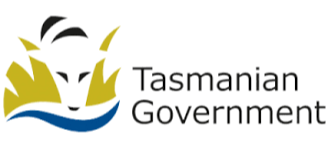Main Conference Day One: Tuesday, 24th March 2026
Morning Sessions
8:15 am - 8:50 am
Registration and Morning Coffee
8:55 am - 9:00 am
Welcome to the Country Speech
9:00 am - 9:10 am
Conference Day 1 Opening and Chair Remarks
Joseph Tonu -
Associate Director, Work Health Safety, Wellbeing & Security,
NSW Justice Health & Forensic Mental Health Network

Joseph Tonu
Associate Director, Work Health Safety, Wellbeing & SecurityNSW Justice Health & Forensic Mental Health Network

9:10 am - 9:30 am
KEYNOTE ADDRESS | The Future of Corrections in the Tech age – A Unified Vision
• Explore how integrated technologies are transforming custodial and community corrections across jurisdictions
• Break down what a unified digital vision means for daily operations, workforce capability, and service outcomes
• Identify key leadership priorities to drive innovation while maintaining safety, accountability, and rehabilitation goals
9:30 am - 10:10 am
KEYNOTE PANEL | Corrections in the Age of Technology and Identity: Redefining Safety, Autonomy and System Control
• Debate how digital identity, biometrics, and surveillance tech are shifting the boundaries of control, autonomy, and privacy
• Compare approaches to embedding tech while upholding safety, ethical standards, and operational integrity
• Unpack leadership strategies to balance system innovation with public trust, workforce adaptation, and lived experience
10:10 am - 10:40 am
INDUSTRY CASE STUDY | Securing the Skies: Responding to Drone-Borne Threats
• Tackling the growing use of drones to smuggle narcotics, weapons, and contraband into correctional facilities.
• Real-world incidents from Australia and abroad exposing the scale of the threat
• Review of counter-drone technologies and physical deterrent systems
• Operational and legislative strategies to improve airspace monitoring and security
10:40 am - 11:00 am
Future Justice & Corrections Speed Networking
11:00 am - 11:30 am
Morning Break & Future Justice Community Networking
11:30 am - 1:00 pm
Interactive Discussion Groups
Attendees attend their pre-selected interactive discussions. Delegates can select 3 topics from a choice of 6, each lasting 30 minutes. Discussion groups are hosted by experts and kept intimate to allow all attendees the opportunity to discuss their most pressing questions in an informal yet constructive approach to problem solving. Sessions are limited upon sign up so register for your chosen sessions quick!
1:00 pm - 2:00 pm
Lunch Break & Future Justice & Corrections Community Corrections
Afternoon Sessions
Infrastructure Modernisation & Facility Innovation
2:00 pm - 2:30 pm ARCHITECTURE TOWNHALL | Designing for Impact: Sustainable Infrastructure in Modern Corrections Sarah Paddick - Senior Associate, Grieve Gillett Architects• Showcasing how sustainable design principles can reduce environmental footprint while improving long-term operational efficiency.
• Examining material selection, energy use, and spatial planning tailored to correctional environments.
• Highlighting lessons learned from recent green facility builds and upgrades across Australia.
Infrastructure Modernisation & Facility Innovation
2:30 pm - 3:00 pm ARCHITECTURE TOWNHALL | Designing Secure Facilities: Trauma-Informed & Neurodiverse Considerations Zac Lovell - Senior Architect & Urban Designer, Grieve Gillett ArchitectsRaquel Dean - Associate Interior Designer, Grieve Gillett Architects
Lessons from: Tasmanian Youth Justice Facility, Pontville, TAS (project commencement – 2026) and Rehabilitation & Training Centre, Yatala Labour Prison, SA (project commencement – 2025)
Infrastructure Modernisation & Facility Innovation
3:00 pm - 3:30 pm Workforce 2030: Training for a New Era of Corrections• Preparing custodial staff to meet the demands of modern correctional environments.
• Skills transformation in response to tech-enabled threats and behavioural complexity
• Training models to build capability in cultural awareness, digital literacy, and trauma-informed care
• Practical strategies to support staff wellbeing, retention, and adaptability
Justice Reform, Reintegration & Community
2:00 pm - 2:30 pm REAL WORLD REFORM | Innovative Approaches to Addressing Family Violence Among the Remand Population in Tasmania Lis Nosworthy - Specialist Clinician – Family Violenc, Tasmania Prison ServiceThrough funding from the Commonwealth Government’s Innovative Perpetrator Responses initiative, the Tasmania Prison Service has implemented a pioneering programme tailored for individuals on remand for family violence-related offences. This non-criminogenic intervention focuses on promoting safe, healthy, and respectful relationships while addressing the underlying behaviours associated with family violence. The presentation will explore the programme's development, objectives, and early insights from its implementation.
Justice Reform, Reintegration & Community
2:30 pm - 3:00 pm Restoring Voices: Arts, Narrative, and Community in Carceral Arts Sara Kirby - Creative Learning Officer, Tasmania Prison ServiceAt Risdon Prison, creative learning initiatives integrate visual arts, narrative therapy, and collaborative projects to normalise prosocial interactions and foster dignity. Central to this approach is the Bars Behind Bars program, which brings local Tasmanian hip hop artists inside prison walls to co-create music with prisoners, bridging cultural divides and amplifying authentic voices. Equally transformative is Great Balls of Fibre, a men’s knitting group that teaches mindfulness and challenges toxic masculinity by reframing care and creativity as strengths. These encounters model healthy relationships, challenge stigma, and cultivate skills for reintegration. Through exhibitions like Artists with Conviction and community-engaged workshops, art becomes a medium for dialogue, empathy, and transformation.
Justice Reform, Reintegration & Community
3:00 pm - 3:30 pm Designing Reintegration That Actually Works – Voices from Inside and Outside Amelia Pickering - Chief Executive Officer, Prison NetworkPattie Phillips - Lived Experience Co-ordinator, Prison Network
• A candid discussion featuring both system leaders and those with lived experience on what meaningful reintegration really looks like.
3:30 pm - 3:45 pm
Walkthrough the Future: Demonstration Drive for Justice Reform
Explore an interactive showcase of emerging technologies and practical solutions powering the future of corrections. From AI-driven monitoring and digital health tools to education platforms and reintegration tech, this is where innovation meets operational reality.
3:45 pm - 4:15 pm
Afternoon Break & Future Justice Community Networking
4:15 pm - 4:55 pm
WOMEN DRIVING REFORM | Leading Change: Women in Correctional Leadership
• Spotlighting the leadership journeys of women shaping the future of corrections across policy, operations, and service delivery.
• Exploring how gender-informed leadership drives cultural change, staff wellbeing, and system reform.
• Sharing strategies for navigating complex environments, influencing decision-making, and mentoring the next generation.
















